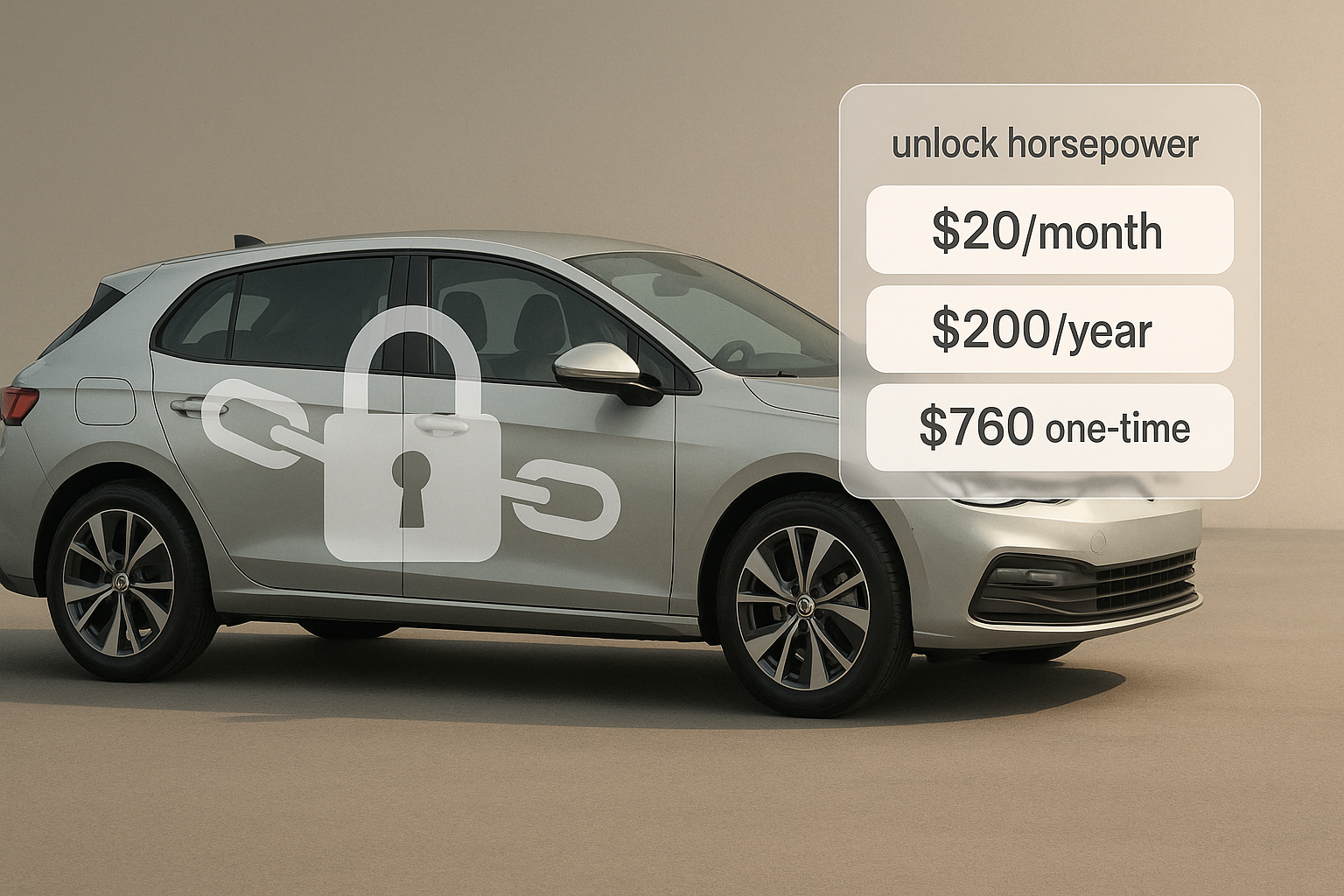There's something almost comically dystopian about Volkswagen's latest bright idea: selling you a car that's deliberately hobbled until you cough up more cash.
In what feels like a fever dream cooked up by subscription-obsessed tech bros who've never actually met a car owner, VW has decided that the full power of your engine should be treated like your Netflix account—something you pay for monthly, or else.
The details? VW's new ID3 Pro and Pro S electric models technically pack 228 brake horsepower under the hood. But here's the kicker—you only get access to 201 of those horses unless you shell out roughly $20 monthly, $200 yearly, or a one-time fee of $760.
Yes, you read that correctly. The car you've already purchased has its full capability artificially restricted by software until you pay extra. It's not that the better engine costs more; it's that the engine you already have is being digitally handcuffed.
I've covered automotive trends for years, and this one feels particularly... well, icky.
The corporate doublespeak defending this practice is something to behold. Volkswagen claims this approach is "nothing new" because they've always offered "engines of the same size, but with the possibility of choosing one with more potency." That explanation requires Olympic-level mental gymnastics. There's a world of difference between offering different physical engines and deliberately neutering the one you've already sold.
Look, what we're really witnessing is the awkward adolescent phase of two business models smashing together. Traditional car sales (you pay once, you own what you paid for) colliding with Silicon Valley's subscription obsession (nothing is ever truly yours, keep paying forever).
For Volkswagen's bean counters, this makes perfect sense. Recurring revenue is catnip to Wall Street—it smooths out quarterly performance bumps and generally commands higher valuation multiples. Why capture value once when you can tap that vein repeatedly?
The pricing structure tells its own story. At $760 for a lifetime unlock versus $200 annually, VW has calculated that most owners will keep their cars about four years before trading up. (Or perhaps that's when most people's patience with subscription fees runs out?)
Curiously, VW has made one consumer-friendly concession that stands out. The horsepower boost stays with the car, not the owner—meaning if you sell your ID3 after paying the lifetime fee, the next owner inherits that unlocked power. This runs counter to typical tech subscription models, where licenses die with ownership transfer.
Why would they do this? Perhaps there's still some old-school German engineering ethos pushing back against the Silicon Valley influence in their boardroom. Or maybe—and this is just my speculation—they realized that a secondhand market filled with cars requiring new subscription payments would absolutely tank resale values.
The broader implications are... troubling. We're watching the transformation of physical products into platforms for endless monetization. Today it's horsepower; tomorrow it might be heated seats (oh wait, BMW already tried that), advanced climate control, or who knows what else.
For us ordinary folks who, you know, just want to drive the cars we've purchased, this represents another skirmish in the increasingly exhausting war between ownership and access. The car sitting in your driveway isn't fully yours unless you keep paying. It's a strange new world where even Newton's laws of motion come with in-app purchases.
(And don't get me started on the security implications. The nanosecond these systems hit the market, there will be hackers figuring out ways to unlock these artificial restrictions. Volkswagen might soon discover they've created a robust market for third-party "horsepower liberation" devices.)
What's particularly fascinating—in that slow-motion-train-wreck kind of way—is how badly car companies seem to misunderstand their customers. Car ownership has always been about freedom, control, and yes, a bit of romance. There's nothing romantic about discovering your vehicle has been deliberately hamstrung until you pay a monthly ransom.
Will consumers accept this new reality? Some will shrug and pay up. Others will vote with their wallets and look elsewhere. Me? I'm just wondering what's next—a coin slot for the windshield wipers?
